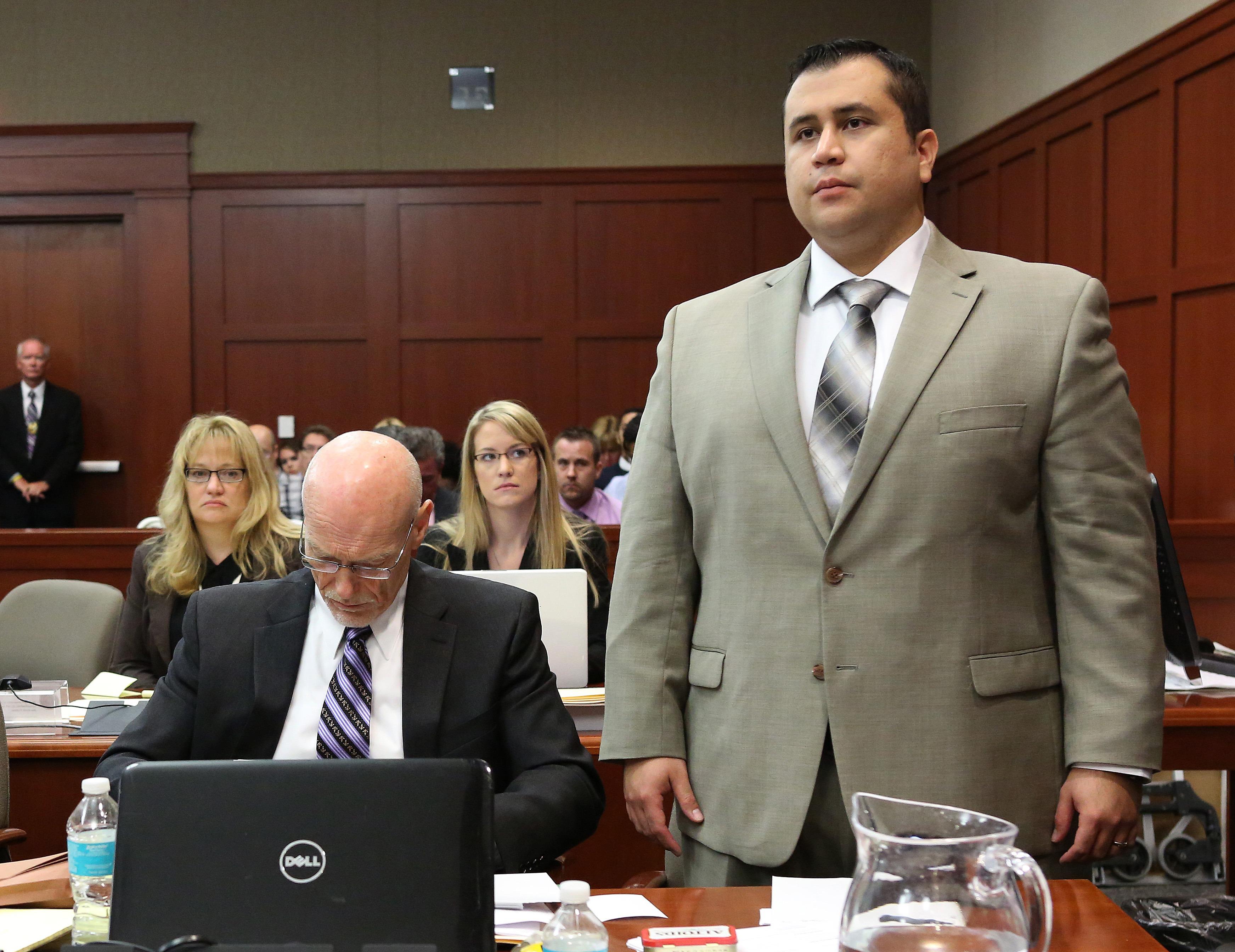Crime is Slate’s crime blog. Like us on Facebook, and follow us on Twitter @slatecrime.
Barring any unforeseen complications, George Zimmerman’s defense team is expected to rest its case this afternoon. While the trial’s not over yet, many observers have already made up their minds: Zimmerman will be found not guilty. Last weekend Washington Post writer Gene Weingarten tweeted, “I don’t like George Zimmerman, & he caused this to happen, but from what I’ve read he will, and should, walk.” ABC analyst Dan Abrams wrote, “I just don’t see how a jury convicts [Zimmerman] of second degree murder or even manslaughter in the shooting death of Trayvon Martin.” The Fort Lauderdale Sun Sentinel predicted that “unless the prosecution rallies, don’t be shocked if Zimmerman walks away totally free.”
I think they’re right. Over the past two weeks, trial-watchers have seen a lot of things: bad jokes, anguish, rage, odd disparagement of Zimmerman’s physical capabilities. But there’s one thing we haven’t seen: a compelling, factual rebuttal to Zimmerman’s account of what happened the night Trayvon Martin was killed.
Here is what we know: Trayvon Martin died in Sanford, Fla., on Feb. 26, 2012. If George Zimmerman hadn’t been there, Martin would still be alive. Zimmerman found Martin suspicious. He called 911. A confrontation ensued. Beyond that, the facts are unclear. There’s not much physical evidence in the case. Other than the defendant, there are no eyewitnesses. Zimmerman claims that he was attacked by Martin, and that he shot him because he felt he was at risk of great bodily harm. We can certainly speculate as to whether or not he’s telling the truth, but can we say for sure? Zimmerman’s the only one who was there, and none of the prosecution’s witnesses came close to conclusively refuting his story.
That’s a problem for the state. To convict Zimmerman, the prosecutors have to prove their case beyond a reasonable doubt. That hasn’t happened. And if the prosecution can’t prove its case, then Zimmerman should walk. Many will see this as an unsatisfying outcome; many will think it shouldn’t be this easy to kill someone, concoct an uncontradictable excuse, and get away with it. But a legally satisfying verdict cannot always be the same as a morally satisfying verdict. It would be unjust if Zimmerman were convicted based not on the strength of the evidence against him, but rather on the public sentiment against him.
“Remember, it’s monumentally irrelevant who’s morally guilty here,” Harvard law professor Alan Dershowitz told Newsmax. “Whether or not Zimmerman was a racist and racially profiled and shouldn’t have been doing it and didn’t listen to police, that’s all irrelevant in Florida law.” Dershowitz was part of the legal team that defended O.J. Simpson in his 1995 murder trial. When Simpson was acquitted, there was the sense that Simpson was saved by high-priced lawyers who clouded the issues with sideshow tactics, bombast, and catchy rhymes. (“If it doesn’t fit, you must acquit!”)
But Zimmerman’s lawyers haven’t made the trial into a spectacle, or used any rhetorical tricks to obscure the facts. Instead, they’ve presented witnesses to support Zimmerman’s story: a local who testified that Zimmerman was out of shape and thus unlikely to prevail in any physical confrontation; a forensic pathologist who said that the trajectory of the bullet that killed Martin shows that Martin was on top of Zimmerman when he was shot. (The fact that Zimmerman’s defense team commissioned an animated re-creation of the fight is a little bit weird, but who’s to say that computer animation isn’t the future of criminal defense law?) Don West and his team didn’t need to turn the case into a sideshow. All they needed to do was to chip away at the prosecution’s case and make clear that reasonable doubt remains.
About a week and a half ago, I wrote a piece about the media’s shabby treatment of prosecution witness Rachel Jeantel, and one reader was certain he detected some anti-Zimmerman sentiment in my column. “It sounded like you were of the opinion, based on [Jeantel’s] testimony, that after [Zimmerman] followed Trayvon that he subsequently attacked Martin,” he wrote in an email to me. “Would that be a mischaracterization?”
“Yes,” I replied. “It would be a mischaracterization. I have no way of knowing what actually happened.” I still don’t. Nobody, except for George Zimmerman, really knows what happened that night. And I suspect that’ll be enough to get him off.
